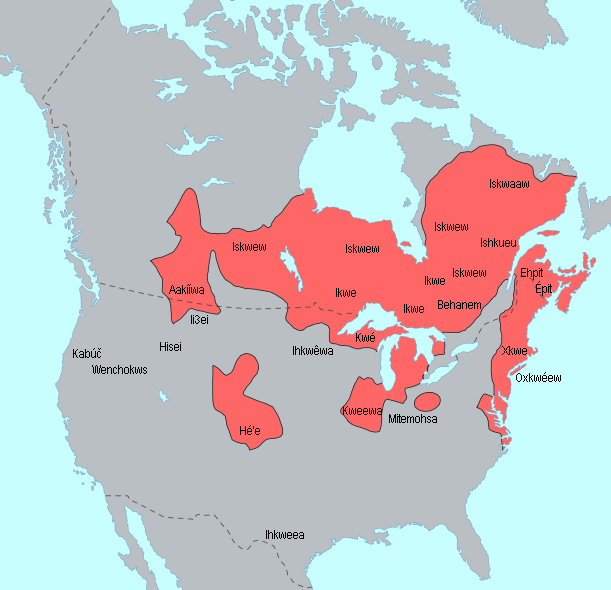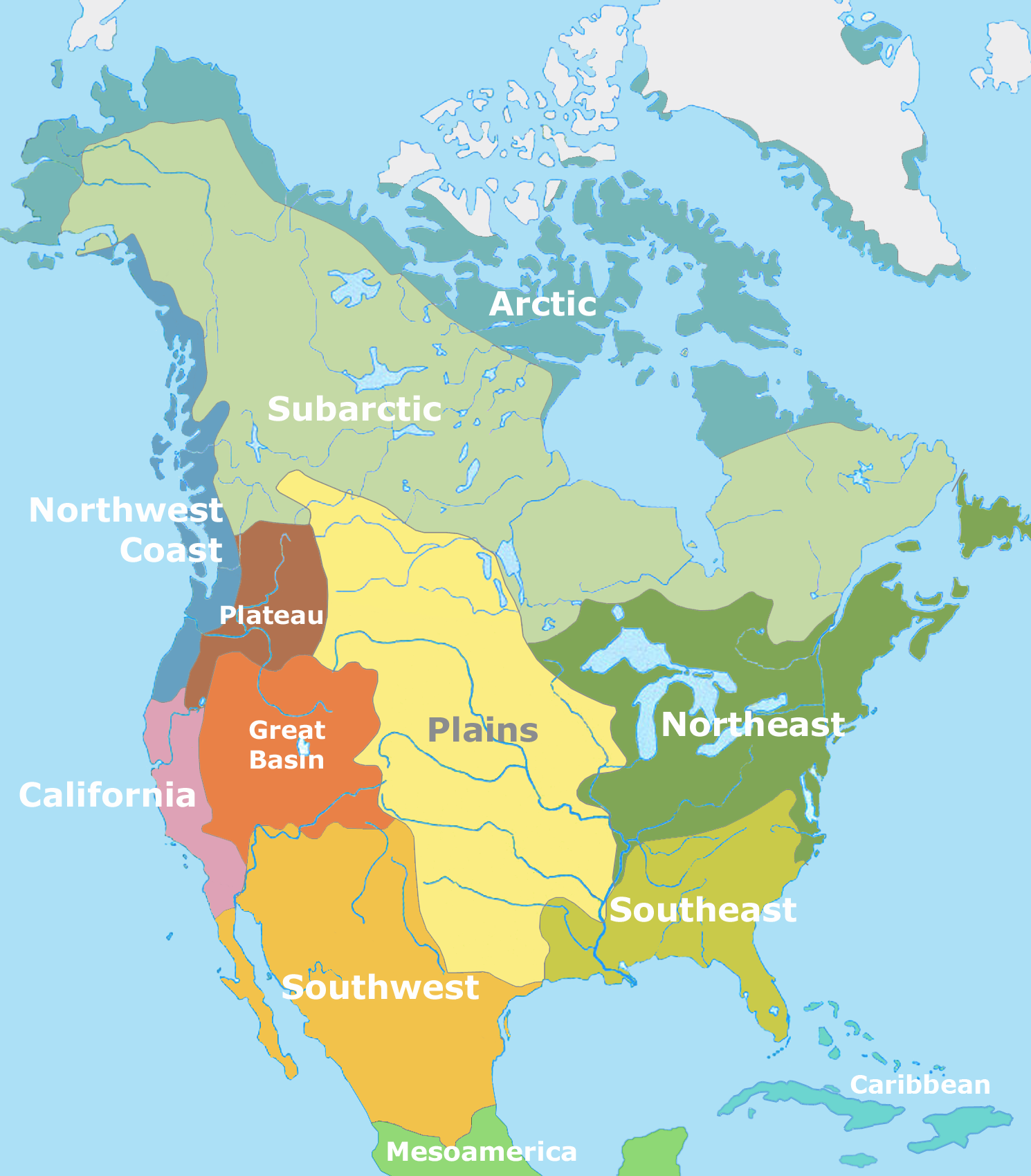|
Potawatomi
The Potawatomi (), also spelled Pottawatomi and Pottawatomie (among many variations), are a Native American tribe of the Great Plains, upper Mississippi River, and western Great Lakes region. They traditionally speak the Potawatomi language, a member of the Algonquian family. They are additionally First Nations in Canada. The Potawatomi call themselves ''Neshnabé'', a cognate of the word ''Anishinaabe''. The Potawatomi are part of a long-term alliance, called the Council of Three Fires, with the Ojibwe and Odawa (Ottawa). In the Council of Three Fires, the Potawatomi are considered the "youngest brother". Their people are referred to in this context as ''Bodéwadmi'', a name that means "keepers of the fire" and refers to the council fire of three peoples. In the 19th century, some bands of Potawatomi were pushed to the west by European/American encroachment. In the 1830s the federal government removed most from their lands east of the Mississippi River to Indian Territo ... [...More Info...] [...Related Items...] OR: [Wikipedia] [Google] [Baidu] |
Potawatomi Language
Potawatomi (, also spelled Pottawatomie; in Potawatomi , , or ) is a Central Algonquian languages, Central Algonquian languages, Algonquian language. It was historically spoken by the Potawatomi, Pottawatomi people who lived around the Great Lakes in what are now Michigan and Wisconsin in the United States, and in southern Ontario in Canada. Federally recognized tribes in Michigan and Oklahoma are working to revive the language. Classification Potawatomi is a member of the Algonquian languages, Algonquian language family (itself a member of the larger Algic languages, Algic stock). It is usually classified as a Central Algonquian language, with languages such as Ojibwe language, Ojibwe, Cree language, Cree, Menominee language, Menominee, Miami-Illinois, Shawnee and Fox language, Fox. The label ''Central Algonquian'' signifies a geographic grouping rather than the group of languages descended from a common ancestor language within the Algonquian family. Of the Central languages, P ... [...More Info...] [...Related Items...] OR: [Wikipedia] [Google] [Baidu] |
Ojibwe Language
Ojibwe ( ), also known as Ojibwa ( ), Ojibway, Otchipwe,R. R. Bishop Baraga, 1878''A Theoretical and Practical Grammar of the Otchipwe Language''/ref> Ojibwemowin, or Anishinaabemowin, is an Indigenous languages of the Americas, indigenous language of North America of the Algonquian languages, Algonquian language family.Goddard, Ives, 1979.Bloomfield, Leonard, 1958. The language is characterized by a series of dialects that have local names and frequently local writing systems. There is no single dialect that is considered the most prestigious or most prominent, and no standard writing system that covers all dialects. Dialects of Ojibwemowin are spoken in Canada, from southwestern Quebec, through Ontario, Manitoba and parts of Saskatchewan, with outlying communities in Alberta;Nichols, John, 1980, pp. 1–2. and in the United States, from Michigan to Wisconsin and Minnesota, with a number of communities in North Dakota and Montana, as well as groups that were removed to Kansas ... [...More Info...] [...Related Items...] OR: [Wikipedia] [Google] [Baidu] |
Anishinaabemowin
Ojibwe ( ), also known as Ojibwa ( ), Ojibway, Otchipwe,R. R. Bishop Baraga, 1878''A Theoretical and Practical Grammar of the Otchipwe Language''/ref> Ojibwemowin, or Anishinaabemowin, is an indigenous language of North America of the Algonquian language family.Goddard, Ives, 1979.Bloomfield, Leonard, 1958. The language is characterized by a series of dialects that have local names and frequently local writing systems. There is no single dialect that is considered the most prestigious or most prominent, and no standard writing system that covers all dialects. Dialects of Ojibwemowin are spoken in Canada, from southwestern Quebec, through Ontario, Manitoba and parts of Saskatchewan, with outlying communities in Alberta;Nichols, John, 1980, pp. 1–2. and in the United States, from Michigan to Wisconsin and Minnesota, with a number of communities in North Dakota and Montana, as well as groups that were removed to Kansas and Oklahoma during the Indian Removal period. While the ... [...More Info...] [...Related Items...] OR: [Wikipedia] [Google] [Baidu] |
Anishinaabe
The Anishinaabe (alternatively spelled Anishinabe, Anicinape, Nishnaabe, Neshnabé, Anishinaabeg, Anishinabek, Aanishnaabe) are a group of culturally related Indigenous peoples of the Americas, Indigenous peoples in the Great Lakes region of Canada and the United States. They include the Ojibwe (including Saulteaux and Oji-Cree), Odawa, Potawatomi, Mississaugas, Nipissing First Nation, Nipissing, and Algonquin peoples. The Anishinaabe speak , or Anishinaabe languages that belong to the Algonquian languages, Algonquian language family. At the time of first contact (anthropology), first contact with Europeans they lived in the Indigenous peoples of the Northeastern Woodlands, Northeast Woodlands and the Indigenous peoples of the Subarctic, Subarctic, and some have since spread to the Plains Indians, Great Plains. The word means . Another definition is , meaning those who are on the right road or path given to them by the Creator deity, Creator Gitche Manitou, or Great Spirit. B ... [...More Info...] [...Related Items...] OR: [Wikipedia] [Google] [Baidu] |
Odawa
The Odawa (also Ottawa or Odaawaa ) are an Indigenous North American people who primarily inhabit land in the Eastern Woodlands region, now in jurisdictions of the northeastern United States and southeastern Canada. Their territory long preceded the creation of the current border between the two countries in the 18th and 19th centuries. Their peoples are federally recognized as Native American tribes in the United States and have numerous recognized First Nations bands in Canada. They are one of the Anishinaabeg, related to but distinct from the Ojibwe and Potawatomi peoples. After migrating from the East Coast in ancient times, they settled on Manitoulin Island, near the northern shores of Lake Huron, and the Bruce Peninsula in the present-day province of Ontario, Canada. They considered this their original homeland. After the 17th century, they also settled along the Ottawa River, and in what became the present-day states of Michigan and Wisconsin. They also occupied ot ... [...More Info...] [...Related Items...] OR: [Wikipedia] [Google] [Baidu] |
Ojibwe
The Ojibwe (; Ojibwe writing systems#Ojibwe syllabics, syll.: ᐅᒋᐺ; plural: ''Ojibweg'' ᐅᒋᐺᒃ) are an Anishinaabe people whose homeland (''Ojibwewaki'' ᐅᒋᐺᐘᑭ) covers much of the Great Lakes region and the Great Plains, northern plains, extending into the subarctic and throughout the northeastern woodlands. The Ojibwe, being Indigenous peoples of the Northeastern Woodlands and of Indigenous peoples of the Subarctic, the subarctic, are known by several names, including Ojibway or Chippewa. As a large ethnic group, several distinct nations also consider themselves Ojibwe, including the Saulteaux, Nipissings, and Oji-Cree. According to the U.S. census, Ojibwe people are one of the largest tribal populations among Native Americans in the United States, Native American peoples in the U.S. In Canada, they are the second-largest First Nations in Canada, First Nations population, surpassed only by the Cree. They are one of the most numerous Indigenous peoples of t ... [...More Info...] [...Related Items...] OR: [Wikipedia] [Google] [Baidu] |
Council Of Three Fires
The Council of Three Fires (in , also known as the People of the Three Fires; the Three Fires Confederacy; or the United Nations of Chippewa, Ottawa, and Potawatomi Indians) is a long-standing Anishinaabe alliance of the Ojibwe (or Chippewa), Odawa (or Ottawa), and Potawatomi North American Native tribes. History Originally one people, or a collection of closely related bands, the ethnic identities of Ojibwe, Odawa, and Potawatomi developed after the Anishinaabe reached Michilimackinac on their journey westward from the Atlantic coast. Using the Midewiwin scrolls, Potawatomi elder Shup-Shewana dated the formation of the Council of Three Fires to 796 AD at Michilimackinac. In this council, the Ojibwe were addressed as the "Older Brother," the Odawa as the "Middle Brother," and the Potawatomi as the "Younger Brother." Consequently, whenever the three Anishinaabe nations are mentioned in this specific ''and'' consecutive order of Ojibwe, Odawa, and Potawatomi, it is an indicato ... [...More Info...] [...Related Items...] OR: [Wikipedia] [Google] [Baidu] |
Ottawa Language
Ottawa or Odawa is a dialect of the Ojibwe language spoken by the Odawa people in southern Ontario in Canada, and northern Michigan in the United States. Descendants of migrant Ottawa speakers live in Kansas and Oklahoma. The first recorded meeting of Ottawa speakers and Europeans occurred in 1615 when a party of Ottawas encountered explorer Samuel de Champlain on the north shore of Georgian Bay. Ottawa is written in an alphabetic system using Latin letters, and is known to its speakers as 'speaking the native language' or 'speaking Ottawa'. Ottawa is one of the Ojibwe dialects that has undergone the most language change, although it shares many features with other dialects. The most distinctive change is a pervasive pattern of vowel syncope that deletes short vowels in many words, resulting in significant changes in their pronunciation. This and other innovations in pronunciation, in addition to changes in word structure and vocabulary, differentiate Ottawa from other dial ... [...More Info...] [...Related Items...] OR: [Wikipedia] [Google] [Baidu] |
Potawatomi Ethnonyms
{{main, Potawatomi This is a list of various names the Potawatomi have been recorded. Endonyms Neshnabé Neshnabé (without syncope: Eneshenabé), a cognate of Ojibwe ''Anishinaabe'', meaning "Original People." The plural is Neshnabék. Bodéwadmi Bodéwadmi (without syncope: Bodéwademi), a cognate of Ojibwe "''Boodewaadamii''". It means "those who keep/tend the hearth-fire", which in this case refers to the hearth of the Council of Three Fires. The word itself comes from "to keep/tend the hearth-fire", which is "''bodewadm''" (without syncope: "''bodewadem''"; Ojibwe "''boodawaadam''"). The plural is Bodéwadmik. * Oupouteouatamik – Jesuit Relations: 1658, 21, 1858. * Patawatimes – Treaty of Greenville (1795) quoted by Harris, Tour, 249, 1805. * Patawattamies – Turkey Creek treaty (1836) in U. S. Ind. Treaties, 648,1837. * Patawattomies – Hunter, Captivity, 14, 1823. * Pattawatamies – Hamtramck (1790) in Am. St. Papers, Ind. Aff., I, 87, 1832.http://memory.loc. ... [...More Info...] [...Related Items...] OR: [Wikipedia] [Google] [Baidu] |
Algonquian Languages
The Algonquian languages ( ; also Algonkian) are a family of Indigenous languages of the Americas and most of the languages in the Algic language family are included in the group. The name of the Algonquian language family is distinguished from the orthographically similar Algonquin dialect of the Indigenous Ojibwe language (Chippewa), which is a senior member of the Algonquian language family. The term ''Algonquin'' has been suggested to derive from the Maliseet word (), meaning 'they are our relatives/allies'. Speakers of Algonquian languages stretch from the east coast of North America to the Rocky Mountains. The proto-language from which all of the languages of the family descend, Proto-Algonquian, was spoken around 2,500 to 3,000 years ago. There is no scholarly consensus about where this language was spoken. Family division This subfamily of around 30 languages is divided into three groups according to geography: Plains, Central, and Eastern Algonquian. Of t ... [...More Info...] [...Related Items...] OR: [Wikipedia] [Google] [Baidu] |
Native Americans In The United States
Native Americans (also called American Indians, First Americans, or Indigenous Americans) are the Indigenous peoples of the Americas, Indigenous peoples of the United States, particularly of the Contiguous United States, lower 48 states and Alaska. They may also include any Americans whose origins lie in any of the indigenous peoples of North or South America. The United States Census Bureau publishes data about "American Indians and Alaska Natives", whom it defines as anyone "having origins in any of the original peoples of North and South America ... and who maintains tribal affiliation or community attachment". The census does not, however, enumerate "Native Americans" as such, noting that the latter term can encompass a broader set of groups, e.g. Native Hawaiians, which it tabulates separately. The European colonization of the Americas from 1492 resulted in a Population history of Indigenous peoples of the Americas, precipitous decline in the size of the Native American ... [...More Info...] [...Related Items...] OR: [Wikipedia] [Google] [Baidu] |







